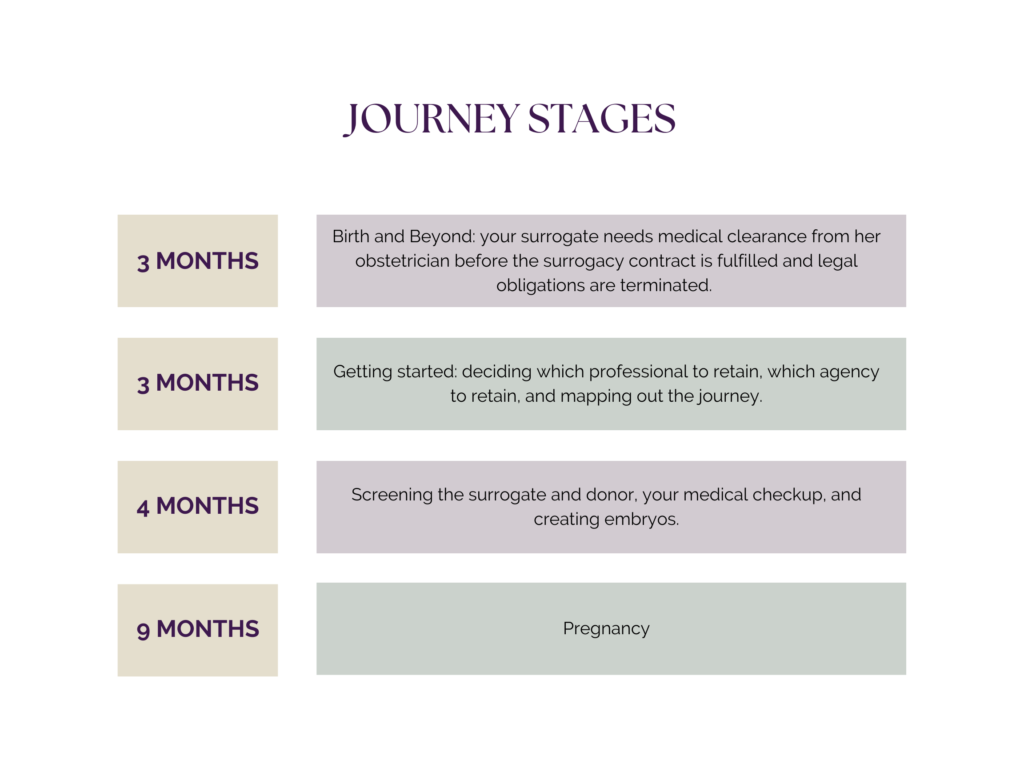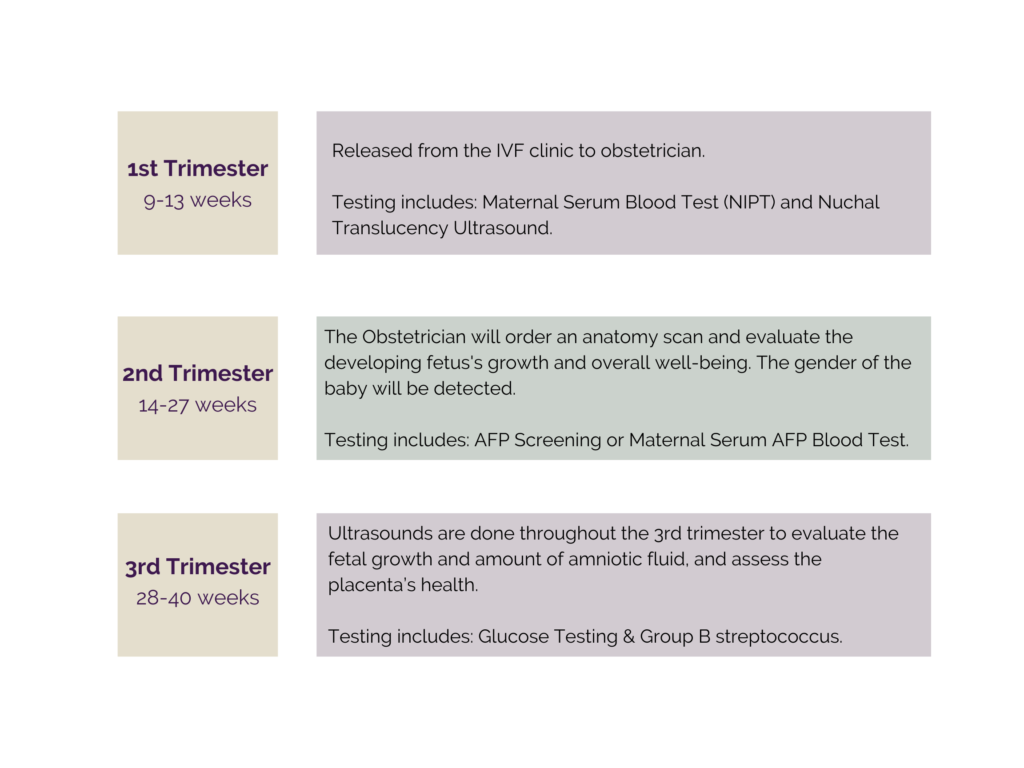Case Managers play a vital role in the fertility journey, going beyond being mere recipients of emails. They accompany you throughout your quest to fulfill your dream, addressing your needs and concerns while connecting you to relevant resources. Retaining their services before choosing medical providers, agencies, or other professionals is advisable, as they possess knowledge of reputable experts in the field and can help you build a cohesive team. A case manager will strive to establish a firm foundation for these relationships by addressing issues that must be openly discussed and carefully considered.
During the screening process, a Case Manager’s expertise becomes particularly valuable. They are well-versed in handling unexpected occurrences, such as fluid in the uterus, thin lining, or unforeseen thyroid problems, quickly securing second opinions or sharing their insights. Even if you are matched with a repeat surrogate, unexpected medical challenges can arise, and your Case Manager will be there to guide you through any issues, coordinating with the medical team and arranging second opinions if necessary.
When transitioning from using your eggs/sperm to an egg/sperm donor is necessary, this shift can be emotionally challenging. Your Case Manager can assist you in consulting with a mental health professional specializing in this area and aid in the search for a suitable donor. With numerous egg/sperm donor agencies available, your Case Manager can help streamline the process by creating accounts and providing a second opinion on your chosen donor, alleviating the overwhelming aspects of selection.
What to Look for in a Case Manager
- Experience
- Communication skills
- Listening skills
- Be self-assured enough to express their viewpoint, even if it differs from yours.
- Patience and adaptability are valuable qualities for a case manager, given that not all journeys are without complexities. Their capacity to offer multiple options is vital in ensuring a stress-free experience for the parties involved.
- In cases where an intended parent requests it, the case manager should be prepared to meet the donor or surrogate, always upholding confidentiality and ensuring no identifying information is disclosed without your explicit consent.
A Surrogacy Journey
A typical surrogacy journey can take 15 to 24 months, and your Case Manager will be instrumental in ensuring your case continues to move forward. There are almost always unexpected delays, and your Case Manager can work to limit the time lost. Here is a breakdown of the time needed for each stage of pregnancy:

Duties of a Case Manager
- Coordinating resources.
- Initiating introductions and keeping in contact with the professionals involved.
- Completing paperwork.
- Advocating on a client’s behalf.
- Verify that all background checks have been completed and reports are read and relayed to the client.
- That the appropriate medical records have been requested, received, and reviewed by the medical office.
- Genetic testing has been completed.
- Insurance options were explained to the client, and it was verified that medical insurance was in place.
- Your Case Manager will also discuss reimbursement of expenses and any compensation between the Parties.
- Facilitating and securing the documents needed to finalize parental rights and permit your baby to travel.
Milestones during a Pregnancy
Every pregnancy is unique, and your Case Manager will be your trusted guide through any worrisome moments. They will help you navigate essential tests to be done during pregnancy and advise you on when to consult with a specialist. If you encounter challenges with insurance coverage for certain tests, rest assured that your Case Manager has a wealth of experience acquired from overseeing numerous pregnancies. Indeed, your Case Manager’s expertise in overcoming various obstacles allows them to offer creative solutions and insights that you might still need to consider.

The Birth & Beyond
Preparing for a surrogacy birth is intensely emotional. Your case manager will offer to schedule a tour of the birthing hospital to ensure you are familiar with the location and more comfortable choosing the hospital.
Under the guidance of your case manager, all parties will discuss the following:
- Who will be in the delivery room (the hospital may have its own rules and limitations)?
- The expectations of the birth process
- What happens after birth and upon dismissal from the hospital?
- Should an Intended Parent give a gift to the surrogate at birth and, if yes, what to buy?
- Can the surrogate provide breast milk?
- What happens when your surrogate enters premature labor, and you are hours or days away from the delivery hospital?
- How to complete the hospital intake forms.
- How to submit baby bills to the insurance carrier.
Your Case Manager’s role extends beyond the birth of your baby. Some surrogates may want to return to their own families as early as possible, while others may struggle to separate from the Intended Parents they have grown fond of. Whereas the Intended Parents may want some private time to spend with the baby, they have longed for it. The surrogate may want to spend time with the new parents and their baby, celebrating her contribution to making this family. In addition, surrogates usually want their children to meet the newborn baby.
In addition, the postpartum period can bring about unexpected emotions for the surrogate, which she may not have experienced before. Case Managers can understand and align these wishes and feelings while respecting the needs of all parties involved.
Intended Parents can also struggle when dealing with being first-time parents, often away from family support, alone in a hotel in an unfamiliar town. They are most likely sleep-deprived and anxious over caring for a newborn. The Case Manager can check in on both the parents and the surrogate frequently, providing each with updates on the new parents and baby and monitoring the surrogate for post-partum depression – alerting the mental health professional where needed. The Case Manager can also assist in finding a baby night nurse to help the intended parents.
Your Case Manager is there to support you throughout the entire journey. Lean on them and work together to plan each stage of the process carefully. With their guidance, you can ensure everything is done right, paving the way for a smoother and more successful journey.
Author: Karen Synesiou, Infertility Portal, Inc.


